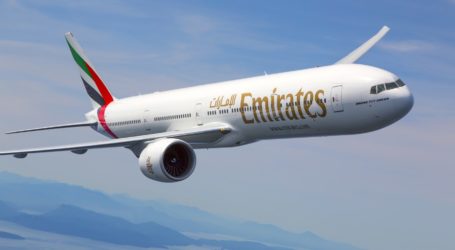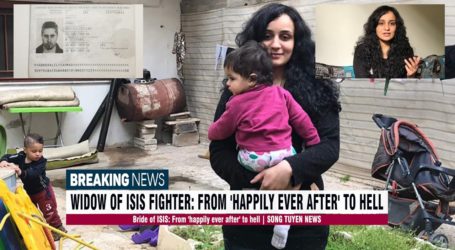SAUDI GRAND MUFTI CALLS ITS PEOPLE NOT TO PARTICIPATE IN SYRIA CONFLICT
 Riyadh, 10 Safar 1435/13 December 2013 (MINA) – Saudi Arabia’s Grand Mufti, Sheikh Abdulaziz al-Sheikh urged Saudis not to travel to Syria to join oppositions parties in battling to unseat Bashar al-Assad.
Riyadh, 10 Safar 1435/13 December 2013 (MINA) – Saudi Arabia’s Grand Mufti, Sheikh Abdulaziz al-Sheikh urged Saudis not to travel to Syria to join oppositions parties in battling to unseat Bashar al-Assad.
With the rise of factions in Syria that claim to be Islam-oriented, the country has grown increasingly worried that Saudis who fight for the anti-Assad cause might one day return home with the aim to unseat the kingdom’s government.
The mufti did not refer to suicide bombings in a specific country. Such attacks have most frequently occured in Iraq, Afghanistan and Pakistan lately, Aljazeera reported as quoted by Mi’raj News Agency (MINA).
The Saudi cleric, whose views influence those Muslims who adhere to the kingdom’s hardline version of Islam, denounced suicide attacks after al-Qaeda’s 2001 assault on US cities, but his latest comments recast the message in sharp terms.
“Killing oneself is a grave crime and a grave sin,” Sheikh Abdulaziz al-Sheikh was quoted as saying by the Saudi-owned Al-Hayat newspaper published on Thursday.
“Those who kill themselves with explosives are criminals who are hastening their way to hell.”
The government-appointed cleric quoted as referring to such attacks as a sin, with attackers condemned to hell.
The highest religious authority in the country, has condemned suicide bombings as grave crimes, reiterating his stance in unusually strong language.
Syrian civil war that began in 2011 damaged the relations between two countries. As a result of these events, Saudi Arabia withdrew its delegation from the Arab League’s peacekeeping mission in Syria on 22 January 2012 and closed its embassy in Damascus in February as well as expelled Syrian ambassador.
One of the early economic relations between Saudi Arabia and Syria was in 1950 when a trade agreement was signed and Saudi Arabia provided the Syria with financial support. It followed other trade agreements, but all of them were cancelled by King Faisal on 3 May 1966 due to hostile attitude of the neo-Baath government in Syria towards Saudi Arabia.
In 1972, the two countries signed another trade and economic agreement. It allowed free imports and exports of local products between two countries without customs fees for agricultural products, livestock and natural resources.
Following the Syrian support for the coalition in the war against the invasion of Kuwait, Syria was provided with nearly $2.2-2.6 billion in aid by Kuwait and Saudi Arabia. In February 1991, a joint committee was formed by Saudi Arabia and Syria, and it fostered economic cooperation between the countries.
Syria and Saudi Arabia signed an accord on 20 February 2001 to set up a free trade area. In December 2001, the two countries and Jordan signed a memorandum of understanding concerning the construction of a railway link to be used by all three for commercial purposes. Later both countries joined the Greater Arab Free Trade Area (GAFTA).
Iran and Saudi Arabia, which back opposite sides in Syria’s war, are among more than 30 countries slated to attend a peace conference next month, diplomats said.
The so-called Geneva 2 conference, a follow-up to a 2012 meeting, is aimed at mapping out a political transition to end nearly three years of fighting that has killed more than 120,000 people and displaced millions.
But the January 22 meeting will actually be held at the lakeside Swiss city of Montreux because of a shortage of hotel rooms in Geneva, which will be hosting a luxury watch fair.
“At the moment there are 32 countries invited, but that number may increase because everyone wants to come,” an Arab diplomat told.
“In addition to the five permanent members of the Security Council (the United States, Britain, France, Russia and China), there are the neighbouring countries, as well as Saudi Arabia and Iran, and also Germany and Italy and others.”
Most countries will be represented by their top diplomats and “each minister can speak for five minutes,” the Arab diplomat said. Afterwards, many of the foreign ministers will attend the World Economic Forum in Davos, which runs from January 22 to 25.
The regime and the opposition will each send delegations to the meeting, and will hold bilateral talks hosted by UN-Arab League envoy Lakhdar Brahimi on January 24 in Geneva.
“Each delegation will be composed of nine members and both the regime and the opposition should present their lists to the UN by December 27, but it is not certain they will respect this date,” the Arab diplomat said.(T/P04//E1)
Mi’raj News Agency (MINA)





